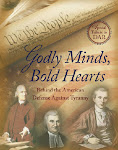In 1962 in a landmark decision, the U.S. Supreme Court determined that it is unconstitutional for state officials to compose an official school prayer and to then promote its recitation in public schools, even if the promotion is not coercive.
The voluntary prayer in question at the time read:
Almighty God, we acknowledge our dependence upon Thee, and we beg Thy blessings upon us, our parents, our teachers and our country. Amen.The ruling, through the eyes of many Christians, is unreasonable and even nonsensical. Will the National Day of Prayer fall prey to the same mindset that banned prayer from school and then become the next religious observance deemed unconstitutional?
National Day of Prayer
The National Day of Prayer (36 U.S.C.§119) is an annual observance designated by Congress to be held on the first Thursday of May. It is a time when people "may turn to God in prayer and meditation."
Each year, in honor of the National Day of Prayer, the President signs an official Proclamation. Although this formality was first acknowledged in 1952, in actuality the observance has been a part of our history since its mandate by George Washington.
"The Honorable the Congress having recommended it to the United States to set apart Thursday the 6th of May next to be observed as a day of fasting, humiliation and prayer, to acknowledge the gracious interpositions of Providence; to deprecate [to pray or intreat that a present evil may be removed] deserved punishment for our Sins and Ingratitiude, to unitedly implore the Protection of Heaven; Success to our Arms and the Arms of our Ally: The Commander in Chief enjoins a religious observance of said day and directs the Chaplains to prepare discourses proper for the occasion; strictly forbidding all recreations and unnecessary labor.” —George Washington, First President of the United States. Source. See also the Library of Congress.
National Day of Prayer 2012
As 2012 is the 50th anniversary of Engel v. Vitale (no prayer in public schools), efforts against the National Day of Prayer will likely be stepped up.
Groups such as the Freedom From Religion Foundation (FFRF) or American Atheists (AA) will once again take sides to say, in effect, that the Federal proclamation first signed by George Washington shows he, either out of disrespect or out of ignorance, was flagrantly violating the establishment clause (in bold below) to the First Amendment of the U.S. Constitution.
Congress shall make no law respecting an establishment of religion, or prohibiting the free exercise thereof; or abridging the freedom of speech, or of the press; or the right of the people peaceably to assemble, and to petition the Government for a redress of grievances.They (FFRF, AA) will say that since the clause prohibits the establishment of state-endorsed religion and that there can be no preference shown for one religion over another, then the National Day of Prayer is unconstitutional because it is a religious endorsement.
The National Day of Prayer proclamation doesn't endorse a particular religion so evidently the FFRF objects to its acknowledgement of any religion at all. In other words, atheistic groups such as the FFRF would like America to simply be "one nation under atheism."
According to Greg Magarian, Professor of Law at Washington University Law, there is no truly authoritative resolution to the question of policies favoring religion over non-religion and vice versa,
“..... the court tends to grow more concerned about official policies that favor religion when the policies entail some kind of actual observance. Official recognition of a National Day of Prayer, without more, doesn’t make anyone do anything.”Magarian further explains that if a public school required students to pray in conjunction with the National Day of Prayer, then that would be a violation to the establishment clause. He clarified,
“But arguably official recognition of the day, without more, simply amounts to the sort of ‘ceremonial deism’ that the court has long tolerated, for example, in allowing the words ‘In God We Trust’ to appear on money."Even though arguments will likely come forth suggesting that official acknowledgement of religious practices treats non-believers as second-class citizens, Magarian is one attorney who opines that the current court would reject an establishment clause challenge to the National Day of Prayer.
Prayer for Peace Among Nations
O Almighty God,
the Father of all humanity,
turn, we pray, the hearts of all peoples and their rulers,
that by the power of your Holy Spirit
peace may be established among the nations
on the foundation of justice, righteousness and truth;
through him who was lifted up on the cross
to draw all people to himself,
your Son Jesus Christ our Lord. Amen.--- William Temple (1881-1944)
O Almighty God,
the Father of all humanity,
turn, we pray, the hearts of all peoples and their rulers,
that by the power of your Holy Spirit
peace may be established among the nations
on the foundation of justice, righteousness and truth;
through him who was lifted up on the cross
to draw all people to himself,
your Son Jesus Christ our Lord. Amen.--- William Temple (1881-1944)
"There has never been a spiritual awakening in any country or locality that did
not begin in united prayer."
Pastor Arthur Tappan Pierson








































































No comments:
Post a Comment